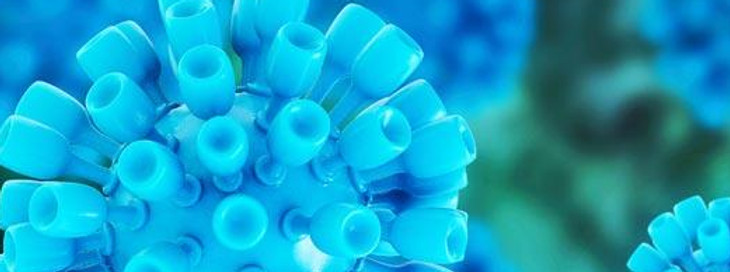top of page

DahariLAB
Mathematical/Computational Virology & Medicine
Evaluation of short-course direct-acting antivirals and ezetimibe to prevent HCV infection in recipients of organs from HCV-infected donors: A single, centre open-label study
Jordan J Feld, Marcelo Cypel, Deepali Kumar, Harel Dahari, Rafaela Vanin Pinto Ribeiro, Nikki Marks, Nellie Kamkar, Ilona Bahinskaya, Fernanda Q Onofrio, Mohamed A Zahoor, Orlando Cerrochi, Kathryn Tinckam, S Joseph Kim MD, Jeffrey Schiff, Trevor W Reichman, Michael McDonald, Carolina Alba, Thomas K Waddell, Gonzalo Sapisochin, Markus Selzner, Shaf Keshavjee, Harry LA Janssen, Bettina E Hansen, Lianne G Singer, Atul Humar
Abstract
BACKGROUND AND AIMS:
An increasing percentage of potential organ donors are infected with hepatitis C virus (HCV). After transplantation from an infected donor, establishment of HCV infection in uninfected recipients is near-universal, with the requirement for post-transplant antiviral treatment. The aim of this study was to determine if antiviral drugs combined with an HCV entry blocker given before and for 7 days after transplant would be safe and reduce the likelihood of HCV infection in recipients of organs from HCV-infected donors.
METHODS:
HCV-uninfected organ recipients without pre-existing liver disease were treated with ezetimibe (10 mg; an HCV entry inhibitor) and glecaprevir-pibrentasvir (300 mg/120 mg) before and after transplantation from HCV-infected donors aged younger than 70 years without co-infection with HIV, hepatitis B virus, or human T-cell leukaemia virus 1 or 2. Recipients received a single dose 6–12 h before transplant and once a day for 7 days after surgery (eight doses in total). HCV RNA was assessed once a day for 14 days and then once a week until 12 weeks post-transplant. The primary endpoint was prevention of chronic HCV infection, as evidenced by undetectable serum HCV RNA at 12 weeks after transplant, and assessed in the intention-to-treat population. Safety monitoring was according to routine post-transplant practice. 12-week data are reported for the first 30 patients. The trial is registered on ClinicalTrials.gov, NCT04017338. The trial is closed to recruitment but follow-up is ongoing.
RESULTS:
30 patients (23 men and seven women; median age 61 years (IQR 48–66) received transplants (13 lung, ten kidney, six heart, and one kidney–pancreas) from 18 HCV-infected donors. The median donor viral load was 5·11 log 10IU/mL (IQR 4·55–5·63) and at least three HCV genotypes were represented (nine [50%] donors with genotype 1, two [11%] with genotype 2, five [28%] with genotype 3, and two [11%] with unknown genotype). All 30 (100%) transplant recipients met the primary endpoint of undetectable HCV RNA at 12 weeks post-transplant, and were HCV RNA-negative at last follow-up (median 36 weeks post-transplant [IQR 25–47]). Low-level viraemia was transiently detectable in 21 (67%) of 30 recipients in the early post-transplant period but not after day 14. Treatment was well tolerated with no dose reductions or treatment discontinuations; 32 serious adverse events occurred in 20 (67%) recipients, with one grade 3 elevation in alanine aminotransferase (ALT) possibly related to treatment. Non-serious transient elevations in ALT and creatine kinase during the study dosing period resolved with treatment completion. Among the serious adverse events were two recipient deaths due to causes unrelated to study drug treatment (sepsis at 49 days and subarachnoid haemorrhage at 109 days post-transplant), with neither patient ever being viraemic for HCV.
CONCLUSION:
Ezetimibe combined with glecaprevir-pibrentasvir given one dose before and for 7 days after transplant prevented the establishment of chronic HCV infection in recipients of different organs from HCV-infected donors. This study shows that an ultra-short course of direct-acting antivirals and ezetimibe can prevent the establishment of chronic HCV infection in the recipient, alleviating many of the concerns with transplanting organs from HCV-infected donors.
Partnerships that get results: Global. Fluid. Connected. Join Us!


2160 S. First Ave
Mulcahy Center, Rm 1610
Maywood, IL 60153, USA
bottom of page